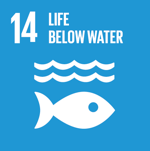Integrated pest management and good agricultural practices in citrus
 Chile
Chile
 Peru
Peru
 Uruguay
Uruguay
Executive Summary
There is a worldwide concern about environmental polution and food health, which has led markets to increase restrictions regarding pesticide registration and tolerance of residues in fruits. This forces the producer to adopt environmentally friendly and sustainable technologies, such as Integrated Pest Management (IPM), which requires knowing the biology and behavior of pests and their natural enemies. In this context, the use of approved and registered agrochemicals is reserved to specific circumstances only.
To improve the incorporation of biological control in citrus production, it is necessary to know the selective effect that available chemicals have over natural enemies of pests. The general objective of the project was to develop an integrated citrus management methodology that complies with the Good Agricultural Practices (BPA, EUREPGAP) regulations, in order to increase the sector's competitiveness. Key specific objectives were:
- • Evaluate the effectiveness of alternative products in IPM with respect to traditional synthetic pesticides.
- • Determine practical thresholds for economic damage in order to rationalize the use of pesticides allowed in the context of GAP.
- • Increase the availability and use of biological controllers for the main citrus pests.
- • Disseminate the knowledge generated to the productive and export sectors.
The technological solution
The technological solution consisted of a rational combination of the use of natural enemies as controllers of the main citrus pests and the use of agrochemicals that comply with sanitary records and the specifications or demands of Good Agricultural Practices (BPA, EUREPGAP). A strictly organic production is not the objective, but a production that combines the best of two different strategies that can complement each other to reduce the impact on the environment.
Results
In field trials the effectiveness of traditional insecticides, adjuvants, detergents, acaricides and insecticides was evaluated on Pseudococcidae, Aleurothrixus floccosus, Panonychus citri, Eriophyes sheldoni and Polyphagotarsonemus latus species. A list of pesticides, including their effectiveness, was drawn and completed in the context of GAP, which implies they are potentially available.
Citrus IPM requires knowledge of the populations and natural enemies of pests, as well as the selectivity of available chemicals over natural enemies. To this end, laboratory tests were carried out with adults and larvae of the main pests. It was concluded that detergents and mineral oil are selective for beneficial fauna, and therefore constitute a good control alternative in an IPM context.
To control post-harvest pests, the project introduced the use of high water pressure, detergents and temperature. The results showed a high level of efficiency in the removal of insects and mites present in the fruits.
The introduction and release of two parasitoids from Israel and Holland was achieved, these will be evaluated in the future to verify their effectiveness.
Beneficiaries
Regarding dissemination of knowledge, IPM talks were held in seminars organized by institutions linked to the export and business environment, three training courses were held for monitors of citrus and avocado pests, with the participation of farmers, advisers, professionals and technicians from the Central zone of Chile. An specific quantification of direct or indirect beneficiaries was not provided by the project.
Sustainable Development Goals




Participating Organizations
Executor
- Instituto de Investigaciones Agropecuarias (INIA) - Chile
Associated
- LATU - Uruguay
- SENASA - Perú




